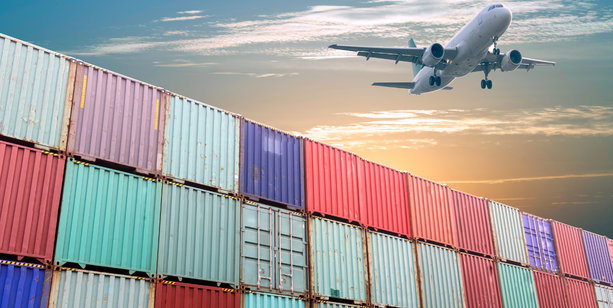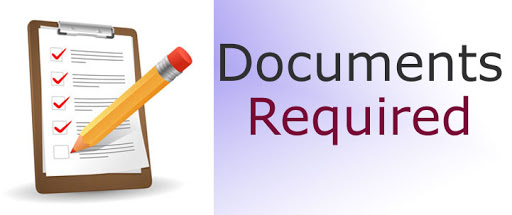- By TOP CHINA FREIGHT
- September 8, 2025
- Air Freight, Shipping
Table of Contents
Understanding air freight prices from China helps companies plan budgets, forecast delivery times, and maintain a competitive edge in international trade. Prices vary due to cargo weight, volume, fuel surcharges, seasonal demand, and service type. This comprehensive guide explores cost structures, shipping routes, customs procedures, and practical strategies for optimizing air shipments.

Why air freight is essential for urgent shipments
Air freight is unmatched in speed, making it the preferred choice for high-value, perishable, and time-sensitive goods. Unlike sea freight, which can take several weeks, air freight ensures deliveries in days, reducing inventory costs and storage risks.
Modern airlines also offer flexible scheduling and tracking systems, which allow businesses to monitor shipments in real time. Additionally, forwarders handle documentation and customs efficiently, minimizing delays. While air freight prices are higher, the benefits in speed, reliability, and reduced inventory holding costs make it a worthwhile investment.
Comparison of shipping methods from China
When planning shipments, understanding the trade-offs between air, sea, and courier services is crucial.
| Shipping Method | Typical Cost | Transit Time | Best Use Case | Advantages | Limitations |
|---|---|---|---|---|---|
| Air Freight | High | 3–7 days | Urgent goods | Fastest, reliable | Expensive, limited volume |
| Sea Freight | Low | 20–35 days | Bulk shipments | Cost-effective, large capacity | Slower delivery |
| Courier | Medium-High | 2–6 days | Small parcels | Door-to-door, easy customs | Not cost-effective for bulk |
Air freight is best suited for electronics, fashion, pharmaceuticals, and other time-sensitive or high-value items. Sea freight remains economical for large volumes, while courier services work for e-commerce parcels and small shipments.
Factors influencing air freight prices from China
Several factors affect costs:
1.Chargeable weight:
Based on actual or volumetric weight, whichever is higher.
2.Fuel surcharges:
Vary with global oil prices.
3.Airport and handling fees:
Each airport has different charges.
4.Seasonal demand:
Peak seasons, such as Chinese New Year and pre-Christmas, increase rates.
5.Service type:
Express vs standard air freight impacts price.
6.Cargo type:
Dangerous goods, perishables, or temperature-sensitive products often incur higher charges.
| Cargo Type | Unit Price (USD/kg) | Notes |
|---|---|---|
| Electronics | $5–$8 | High-value, sensitive items |
| Apparel & Textiles | $4–$6 | Medium-value, lightweight |
| Perishables | $6–$10 | Cold-chain required |
| Machinery Parts | $3–$7 | Heavy but smaller volume |
Common air freight routes from China
Transit times vary based on origin and destination airports:
| Route | Transit Time | Notes |
|---|---|---|
| Shanghai → Los Angeles | 3–5 days | Frequent flights, electronics and tech |
| Shenzhen → São Paulo | 5–7 days | Suitable for urgent bulk shipments |
| Guangzhou → London | 2–4 days | High-value fashion and luxury goods |
| Ningbo → Dubai | 3–5 days | E-commerce and small parcels |
Selecting the right airport and scheduling regular shipments reduces delays and storage costs.
How to optimize air freight costs
Combine multiple small shipments to reduce per-kg charges
Reduces volumetric weight and handling costs
Avoid last-minute peak-season surcharges
Professionals can negotiate rates and handle customs efficiently
Consider standard vs express depending on urgency.
Customs requirements and documentation

Efficient customs clearance is critical to avoid delays:
| Document | Purpose |
|---|---|
| Air Waybill (AWB) | Proof of shipment and ownership |
| Commercial Invoice | Declares cargo value |
| Packing List | Details shipment contents |
| Certificate of Origin | Confirms country of manufacture |
| Import Licenses (if needed) | Required for regulated items |
Electronic submission and coordination with forwarders expedite customs processes.
Case Study: Brazilian Electronics Retailer

A São Paulo retailer imported smartphones via air freight from Shenzhen. Initially, frequent small shipments increased per-unit costs. By consolidating weekly shipments and using a reliable forwarder, costs were reduced by 25%, while delivery times remained under five days. The forwarder handled documentation, customs clearance, and local delivery, demonstrating the value of strategic air freight planning.
Choosing the best air freight forwarder
Forwarders play a key role in ensuring cost-efficient, timely shipments:
1.Experience:
Specialists in China-origin air freight provide better insights.
2.Service coverage:
Ensure customs handling and last-mile delivery.
3.Tracking technology:
Real-time updates improve logistics planning.
4.Transparent pricing:
Avoid hidden fees or surcharges.
Managing risk in air freight
Air freight, while fast, carries certain risks:
1.Damage to fragile goods
Proper packaging and insurance mitigate risks.
2.Flight delays
Weather, technical issues, and congestion can impact schedules.
3.Regulatory changes
Customs or aviation rules can change quickly.
4.Volatile fuel costs
Can increase freight charges unexpectedly.
Risk management strategies include insurance, selecting experienced forwarders, and diversifying shipment schedules.
Trends impacting air freight in 2025
Airlines adopt fuel-efficient planes, and carbon offset programs gain traction
Forwarders increasingly use cloud-based tracking and document management
Air, sea, and road services combine to optimize cost and speed
Rising small-parcel shipments increase demand for flexible air freight solutions
Tips for SMEs using air freight
- Consolidate shipments to reduce costs per kg.
- Use standard packaging to minimize volumetric weight.
- Schedule shipments to avoid peak-season surcharges.
- Collaborate with experienced forwarders for guidance.
- Leverage digital tools to track shipments and plan inventory.
By implementing these strategies, SMEs can access fast, reliable shipping while maintaining budget control.
Conclusion
Understanding air freight prices from China allows businesses to plan budgets, manage inventory, and deliver products quickly. Strategic shipment planning, forwarder partnerships, route selection, and packaging optimization can reduce costs and improve efficiency. Air freight remains the fastest option for priority shipments, and leveraging professional expertise ensures smooth customs clearance and on-time delivery.
Need a Shipping Quote?
If you want expert guidance and peace of mind, our team is ready to assist.
TJ China Freight offers tailored solutions to help businesses of all sizes ship more reliably from China.

FAQs
Q1:How is air freight pricing calculated from China?
Air freight pricing is based on actual or volumetric weight, fuel surcharges, airport fees, and service type. Forwarders provide detailed quotes to avoid hidden charges
Q2:What documents are needed for customs clearance?
Required documents include Air Waybill, commercial invoice, packing list, certificate of origin, and any import licenses. Correct documentation ensures timely clearance.
Q3:Can SMEs benefit from air freight?
Yes, especially for urgent or high-value goods. Consolidating shipments and efficient packaging help reduce costs for smaller businesses.
Q4:How do forwarders reduce air freight costs?
Forwarders negotiate airline rates, consolidate shipments, manage documentation, and optimize routes, lowering total costs.
Q5:How to avoid seasonal price spikes?
Book shipments in advance, consolidate cargo, and consult forwarders who track peak-season trends to minimize costs.
